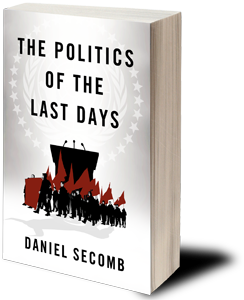Politicians in the Netherlands are discussing the possibility of legalizing euthanasia for healthy people. The proposed “Completed Life Bill” would allow any person age 75 or over who decides their life is “complete” to receive euthanasia. It doesn’t matter if they are otherwise perfectly healthy.
Under current Dutch law, a person only becomes eligible for euthanasia when they have a terminal illness and are suffering unbearably. Pia Dijkstra, an MP for Dutch political party D66, is preparing to introduce the Completed Life Bill. D66 spearheaded most of the groundbreaking socially progressive legislation for which the Netherlands is famous. They are historically a smaller party—they’ve never had a Prime Minister—but they’ve proven themselves to be politically effective.
What Would It Take For This To Pass?
D66 would eventually like to legalize euthanasia for any adult who wishes to die. They openly admit that the Completed Life Bill is a step towards realizing that goal. In March, D66 leader Alexander Pechtold was confronted on a political talk show by a 57-year-old man who said he wishes to die. He asked why the Completed Life Bill is only persons age 75 and older. “I have to wait 18 more years. I don’t feel like waiting 18 years. I want it now,” he said.
Pechtold replied, “It’s my personal opinion that in our civilization dying is an individual consideration. You didn’t ask to be brought into the world.” He went on to explain that currently there is political support for legalizing euthanasia for healthy elderly persons. “If we want to maintain that support and not disrupt the discussion then we have to take it step-by-step. In 2002 we passed the euthanasia law for unbearable suffering. In my view, Pia Dijkstra can now continue persuading parliament and the country to—in my own words and personal opinion—take the next step for our civilization.”
Ironically, the Dutch public news broadcaster decided to include a notice with the number for a suicide prevention hotline directly below where the video of Pechtold’s comments is embedded on their website.
If the Completed Life Bill comes to a vote in Parliament, it will most likely pass. Prime Minister Mark Rutte of the People’s Party for Freedom and Democracy has said he is willing to enact it. The question is whether the bill will be placed on the legislative agenda.
In Dutch politics, no party ever wins a majority of seats in parliament. The largest party has to form a coalition with several smaller ones. National elections were held in March, and Prime Minister Rutte is currently negotiating with D66 and two Christian parties—the Christian Democratic Appeal and the Christian Union—about forming a coalition. Both Christian parties are opposed to the Completed Life Bill. The Christian Union in particular is likely to make preventing a vote on the bill a condition of joining the coalition.
Some Doctors Believe This Is Too Much
While politicians debate such a drastic expansion of euthanasia, the manner in which it is currently being carried out in the Netherlands is coming under fire. Earlier this year, a group of 220 doctors took out an advertisement in a major newspaper saying they will refuse to euthanize patients with advanced dementia who are unable give verbal consent. Under Dutch law, an elderly person who is still compos mentis can write a legal declaration stating that they wish to be euthanized when they develop advanced dementia. They can specify conditions about when they want to die, e.g. when they no longer recognize their immediate family.
The doctors who signed the advertisement say they cannot accept these legal declarations. They write, “Giving a deadly injection to a patient with advanced dementia on the basis of their written declaration? To someone who cannot confirm that they wish to die? No, we’re not going to do that. Our moral abhorrence at ending the life of a defenseless person is too great.”
Many of the doctors who signed the advertisement actually administer euthanasia, but they draw the line with patients who are unaware of what is being done to them.
The doctors were motivated by a 2016 case in which the Dutch committee that oversees euthanasia concluded a doctor had acted negligently. An elderly woman with advanced Alzheimer’s had previously written a legal declaration requesting euthanasia, but her specifications about the point at which she was ready to die were open to interpretation. The doctor who euthanized her began by secretly placing a sedative in her coffee. The woman subsequently woke up wide-eyed and resisted the fatal injection. She was restrained by family members and the doctor proceeded.
The controversy flared up again in June when Boudewijn Chabot, a psychogeriatrician and prominent euthanasia supporter, published a 2,600-word op-ed in which he argued that euthanasia now “getting out of hand.” He believes that the euthanasia oversight committee is lax in carrying out its duty and also insufficiently transparent about what it communicates to the public. Chabot argued that legal protections for patients have been quietly eroded over time. He is particularly concerned about the way euthanasia is administered to patients with advanced dementia or chronic psychiatric illness.
The Increase In Euthanasia Is Shocking
In 2016, there were 6,091 reported instances of euthanasia in the Netherlands. Of those, 141 were for patients with dementia. That is up from 12 such cases in 2009. Also for patients with chronic psychiatric illness, there were 0 instances of euthanasia in 2009, but by 2016 that number had risen to 60. “The numbers are small, you could argue,” Chabot writes. “But look at the rapid increase…The financial gutting of the health care sector has particularly harmed the quality of life of these types of patients. It’s logical to conclude that euthanasia is going to skyrocket.”
Chabot is concerned that the legal guidelines for euthanasia for patients with physical illnesses are applied without any further qualification to patients with dementia and psychiatric illness. He believes that simply doesn’t work and can lead to ethical violations.
Speaking to Dutch media, Dijkstra said the concerns expressed in Chabot’s op-ed have no bearing on the Completed Life Bill. “The euthanasia law is being carried out carefully. It’s a pity that certain people constantly want to bring it up for discussion.” Though, in this instance, it is doctors who practice euthanasia who are saying things have gone too far.
Source: The Federalist
 Register your interest for Daniel Secomb's new book, "Politics of the Last Days"
Register your interest for Daniel Secomb's new book, "Politics of the Last Days"
Daniel's new book explores the integral and fascinating role that politics will play in the end times.
He demonstrates that political philosophy is actually underpinned by biblcal principles and that by examining the political history of the past can give us a fascinating glimpse into how Biblical end times events will unfold.
Be sure to sign up with your name and email address to be notified of updates and the upcoming release date of the book.


















